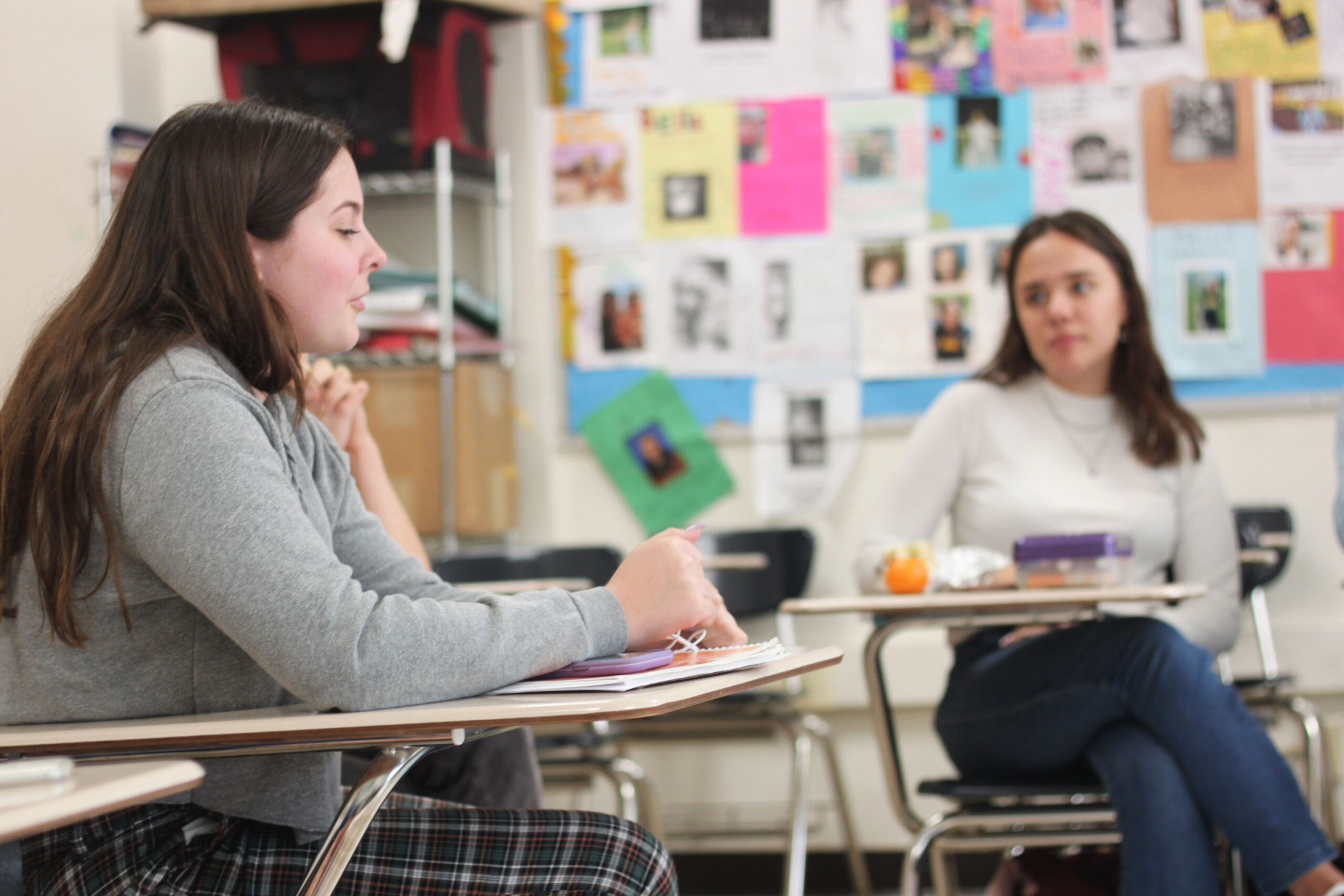“Body positivity is a journey, and it’s definitely not linear. It’s not something you just magically have and it’s not something that can ever be considered mastered. That’s what makes it so special,” said Loren Breidenbach, co-president of the Body Positivity Club. The body positivity movement, the inspiration behind the club, was created in response to what many perceive as the unrealistic expectations of beauty placed on both men and women by society. Driven by their own struggles with body positivity, co-presidents Bisbee Hall and Breidenbach aim to help students feel comfortable in their bodies and educate them on the dangers of diet culture.
The Body Positivity Club has existed at Berkeley High School (BHS) for years through the Body Positive Organization, but, this school year, Breidenbach and Hall chose to operate more independently in order to make the club more student-focused. “There is such a great need for this type of organization at our school, which is ironic because I kind of feel like it’s also super neglected. It’s so common to just walk into the girl’s bathroom and be flooded with so many people sharing such negative opinions,” said Breidenbach.
According to Breidenbach, body positivity “doesn’t mean that you have to be 100 percent confident and flaunting yourself all the time … It’s about recognizing everything that contributes to who you are and honoring all your body does to make you that person”.
At club meetings, members discuss “the complexities of diet culture, body dysmorphia, eating disorders, and societal standards of a ‘perfect body,’” said Hall. The club also does different activities such as sticking post-its with positive affirmations around BHS and sketching designs on models with diverse body types. In November, the club raised $550 for the National Eating Disorders (NEDA) walk.
In the future, Breidenbach and Hall aim to include all of BHS through assemblies and body positive seminars in certain classes. They also hope to expand the diversity of the club to include a broader range of backgrounds and body types. For Academic Choice (AC) junior Miles Miller, being a member of the Body Positivity Club has given him “a place to be able to talk about insecurities with people going through the same experiences,” and helped him discover how to have a positive relationship with his body.
According to Breidenbach, changing how people feel about their bodies includes eliminating the negative connotation of the word “fat.” “Something that our society needs to understand is that the word ‘fat’ is not a bad one, it’s simply a descriptor and quite frankly something that all of our bodies possess,” she said. In order to accomplish this, Hall and Breidenbach believe high schools should be responsible for educating students on body positivity and diet culture. “If I had learned from early on what diet culture was, how it affects me … my journey would have been completely different. BHS in particular needs to do a better job educating its students on diet culture,” said Anya Draves, a sophomore in AC.
The club provides a space for students to discuss their struggles with their peers. Breidenbach said, “I hope that members of Body Positivity are able to take away a new way of thinking about themselves … as well as the ability to pick themselves up when loving themselves just seems completely [plausible].”





